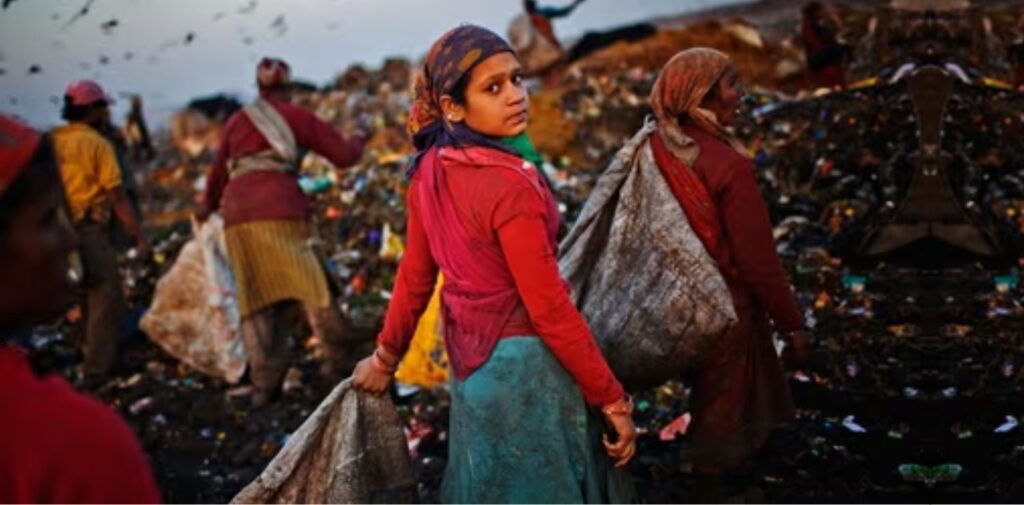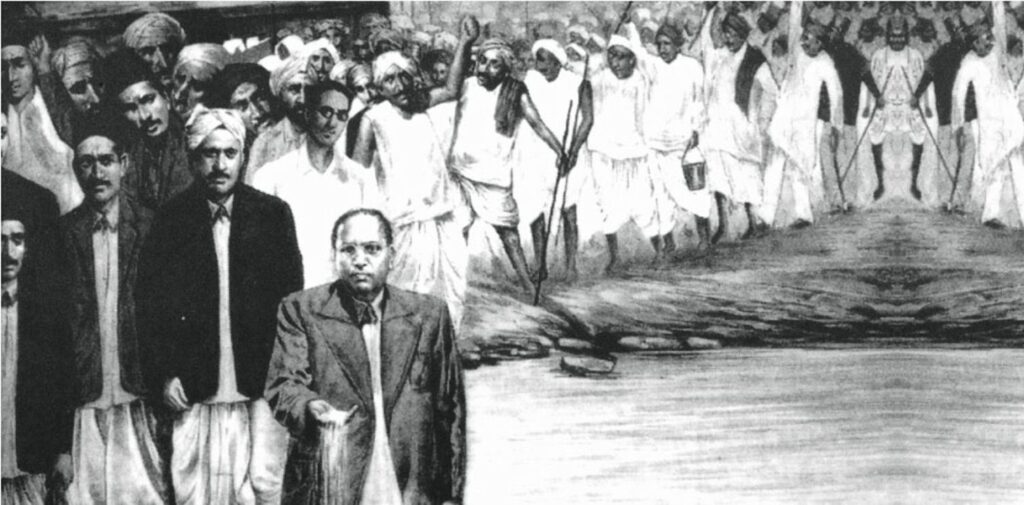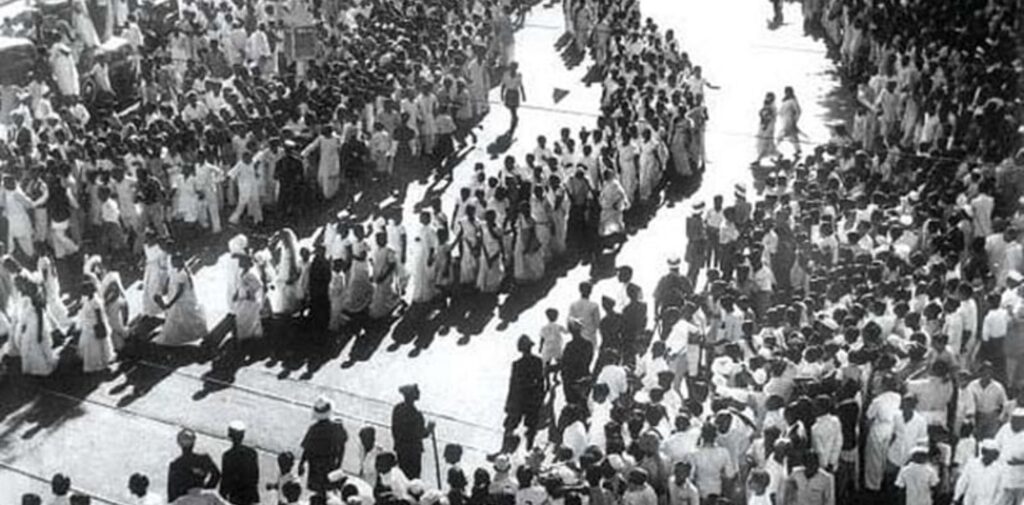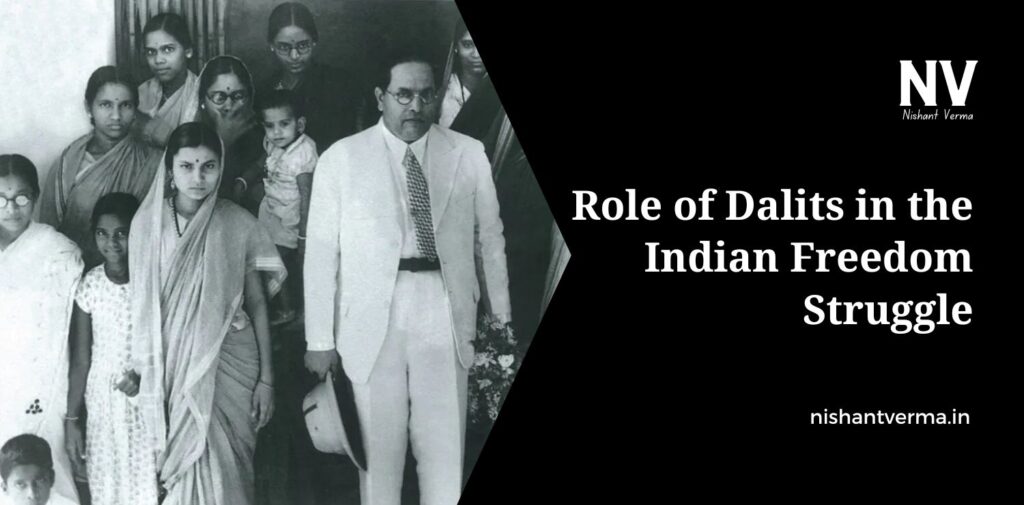India’s journey to independence was not just a fight against the British rulers; it was also a struggle for social justice and equality. While many people are aware of famous leaders like Mahatma Gandhi, Jawaharlal Nehru, and Subhas Chandra Bose, many other heroes played an equally important role in India’s freedom movement. Among them were the Dalits, who are people from the lower castes of Indian society. These individuals not only fought against British colonial rule but also struggled against the social discrimination they faced within their own country.
Let’s dive into understanding the significant contributions & Role of Dalits in India’s fight for freedom.
Who Are the Dalits?
Dalits, also known as Untouchables, belong to the lowest social groups in the traditional caste system of India. The caste system is a social hierarchy that divides people based on their birth. Dalits were considered the most oppressed and were often denied basic rights, including access to education, healthcare, and even the right to enter temples or public spaces.
Despite this discrimination, Dalits were determined to fight for their rights, and many of them became key figures in India’s freedom struggle. Their contribution is often overlooked, but it was crucial in the larger battle for India’s independence from British rule.

Early Struggles for Equality
Before the British even came to India, the Dalits were already fighting against social injustice and untouchability. One of the most important movements for Dalits started in the 19th century, under the leadership of Dr. B.R. Ambedkar, who is widely regarded as the father of the Dalit movement in India.
Ambedkar was a visionary leader who fought for the rights of Dalits and other marginalized communities. He worked hard to abolish untouchability, and he believed in the power of education and social reform. Ambedkar’s efforts led to significant changes in Indian society, including the drafting of the Indian Constitution, which gave equal rights to all citizens, regardless of caste.
However, even before Ambedkar rose to prominence, many Dalit leaders were already fighting for social equality and against the British rulers. One of the earliest and most significant movements led by Dalits was the Non-Cooperation Movement, which was started by Mahatma Gandhi.
Dalits in the Non-Cooperation Movement
The Non-Cooperation Movement was one of the most important steps in India’s fight for independence. It was started in 1920 by Mahatma Gandhi, and it called for Indians to refuse to cooperate with British rule. People were asked to boycott British goods, institutions, and even schools. The movement was supported by many, including a large number of Dalits.
Mahatma Gandhi, who believed in Ahimsa (non-violence) and Satya (truth), understood the importance of involving every section of society in the fight for freedom. He wanted to include Dalits in the struggle because he saw their suffering due to untouchability. Gandhi even called the Dalits “Harijans,” meaning “children of God,” to show respect for them and highlight their dignity. This effort helped bring Dalits into the mainstream of the freedom struggle, and they became an important part of the movement.
Many Dalit leaders joined Gandhi’s Non-Cooperation Movement and worked to raise awareness about social injustices. They supported the idea of self-reliance and self-rule in India. Although Dalits faced many challenges due to their caste status, they continued to fight against both British rule and the caste system.

B.R. Ambedkar and His Role in the Freedom Struggle
As India’s freedom movement grew stronger, Dr. B.R. Ambedkar became a significant figure in the Dalit community. While Gandhi believed in using non-violent methods, Ambedkar was determined to fight for the rights of Dalits through legal and political means. Ambedkar’s main focus was on achieving social equality for the Dalits.
In the early 20th century, Ambedkar started the Depressed Classes Movement, which aimed to eliminate untouchability and improve the social, political, and economic conditions of Dalits. He worked on creating awareness about the discrimination Dalits faced and took steps to empower them.
Ambedkar was also the chief architect of India’s Constitution. He ensured that the Constitution guaranteed equal rights to all Indians, regardless of caste, and made untouchability illegal. This was a huge victory for the Dalit community, as it provided them with legal rights and protection from discrimination.
Ambedkar’s leadership and vision inspired millions of Dalits to participate in the fight for freedom, not only from the British but also from the social injustices they faced in India.
The Contribution of Dalit Leaders in the Struggle
In addition to Dr. Ambedkar, many other Dalit leaders played a crucial role in India’s freedom struggle. Jyotirao Phule, for example, was an important social reformer who fought against the caste system long before the Indian independence movement gained full momentum. Phule’s work focused on educating Dalits and women, and he also founded the Satya Shodhak Samaj (Society of Truth Seekers) to promote social justice.
Another important leader was Periyar E.V. Ramasamy, who fought for the rights of the oppressed and worked towards the abolition of the caste system. He was a strong advocate for social equality and worked to uplift Dalits and other marginalized communities.
Dalit Participation in the Quit India Movement
The Quit India Movement of 1942, led by Mahatma Gandhi, was one of the most significant moments in India’s struggle for freedom. The movement called for the British to leave India immediately and for Indians to take control of their destiny. While many leaders and people from different sections of society took part in this movement, Dalits were also a major part of it.
Dalits, especially those in rural areas, took a stand against British rule and actively participated in protests, strikes, and demonstrations. Despite the harsh punishments and discrimination they faced, Dalit leaders and ordinary Dalits joined the movement in large numbers. They fought for their freedom, and their efforts made a big difference in the movement’s success.

The Role of Dalits After Independence
After India gained independence in 1947, the fight for equality and justice for Dalits did not end. They continued to face discrimination, poverty, and social exclusion. However, the Indian government, under the leadership of Dr. B.R. Ambedkar, took steps to improve their situation.
The Indian Constitution provided for the upliftment of Dalits by offering them reservations (special provisions) in education, jobs, and politics. This gave Dalits more opportunities to rise and participate in the nation’s progress. The Constitution also outlawed untouchability, making it illegal to treat anyone as inferior due to their caste.
Even today, Dalits continue to play an important role in India’s political, social, and economic life. They have become active in politics, social movements, and various professions, working hard to make India a truly equal society.
Conclusion
The Dalits’ role in India’s freedom struggle is an essential and inspiring part of our history. Despite facing social discrimination, poverty, and exclusion, the Dalit community actively participated in the fight for India’s independence. Leaders like Dr. B.R. Ambedkar, Mahatma Gandhi, Jyotirao Phule, and Periyar E.V. Ramasamy showed the world the importance of equality and justice. Their courage and determination in fighting both the British rulers and the social injustice of the caste system helped shape a better future for India.
Today, India is a free country because of the sacrifices and efforts of many communities, including the Dalits. Their contribution is a reminder that freedom is not just about ending foreign rule; it is also about fighting for the dignity, equality, and rights of every individual, regardless of caste, religion, or background.




